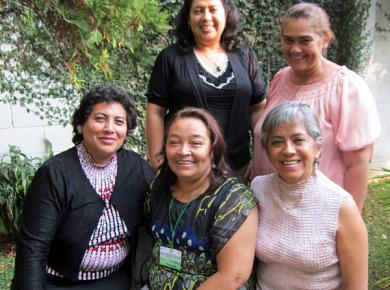Posted: August 5, 2014
Goshen Indiana, USA – In 2013, Mennonite Women USA’s International Women’s Fund (IWF) awarded scholarships totaling $10,500 to 21 women in India, Africa and Latin America. Scholarships are used by recipients in pursuit of theological training for church leadership.
Prospective students are referred to Mennonite Women USA by church leaders in their countries, or by North Americans who work with the churches in other countries.
Over the past 13 years, 75 women have been awarded scholarships, totaling more than $98,274. Women in 18 different countries have been assisted in their education through the efforts of the IWF.
Former IWF recipients Rebecca Osiro (Kenya) and Alix Lozano (Colombia) serve on the Faith and Life Commission of Mennonite World Conference. Another recipient, Sandra Campos, currently serves on the MWC Executive Committee.
Elizabeth Soto Albrecht, moderator of Mennonite Church USA, received IWF funds to study theology in Colombia, where she was ordained to Christian ministry.
In September five women will be ordained by the Communauté Mennonite au Congo in Democratic Republic of Congo including Sidonie Swana Tangiza Tenda, who is an IWF recipient. Rachel Bagh teaches seminary in India and has participated in the formation of the Asian Women Theologians group. Other former IWF recipients are currently pastoring churches, teaching in colleges and seminaries, and actively participating in Christian education and community activities.
The training provided by the scholarships is intended to help women across generations and cultures nurture their life in Christ, use their gifts, express their prophetic voice, minister to their local congregations and contribute to the leadership of the broader church.
The International Women’s Fund has its origins with the Women in Mission of the former General Conference Mennonite Church. For 20 years before the General Conference church merged with the (Old) Mennonite Church in 2002, Women in Mission funded many women with scholarships for theological education.
– Ruth Lapp Guengerich

Comments: